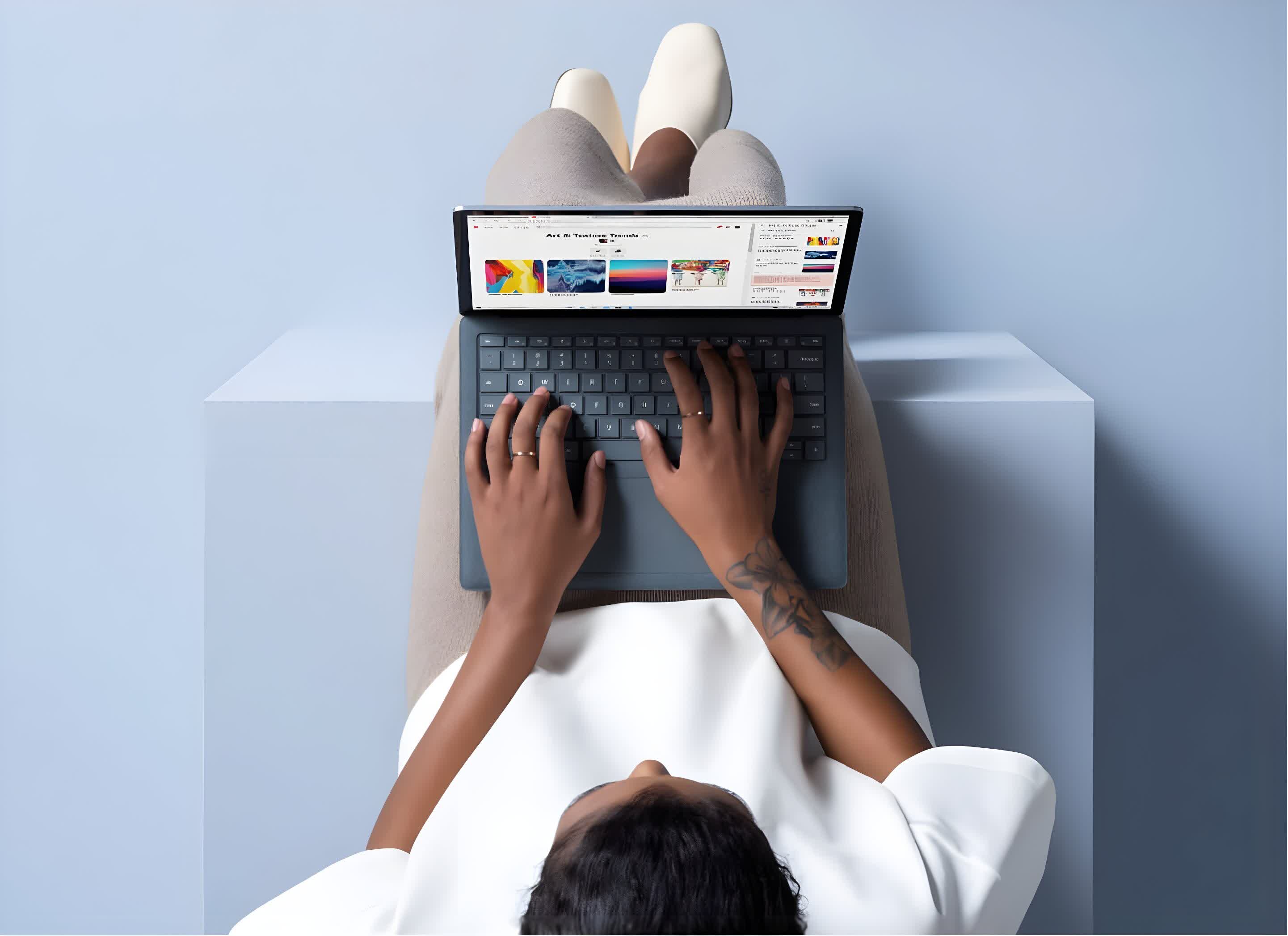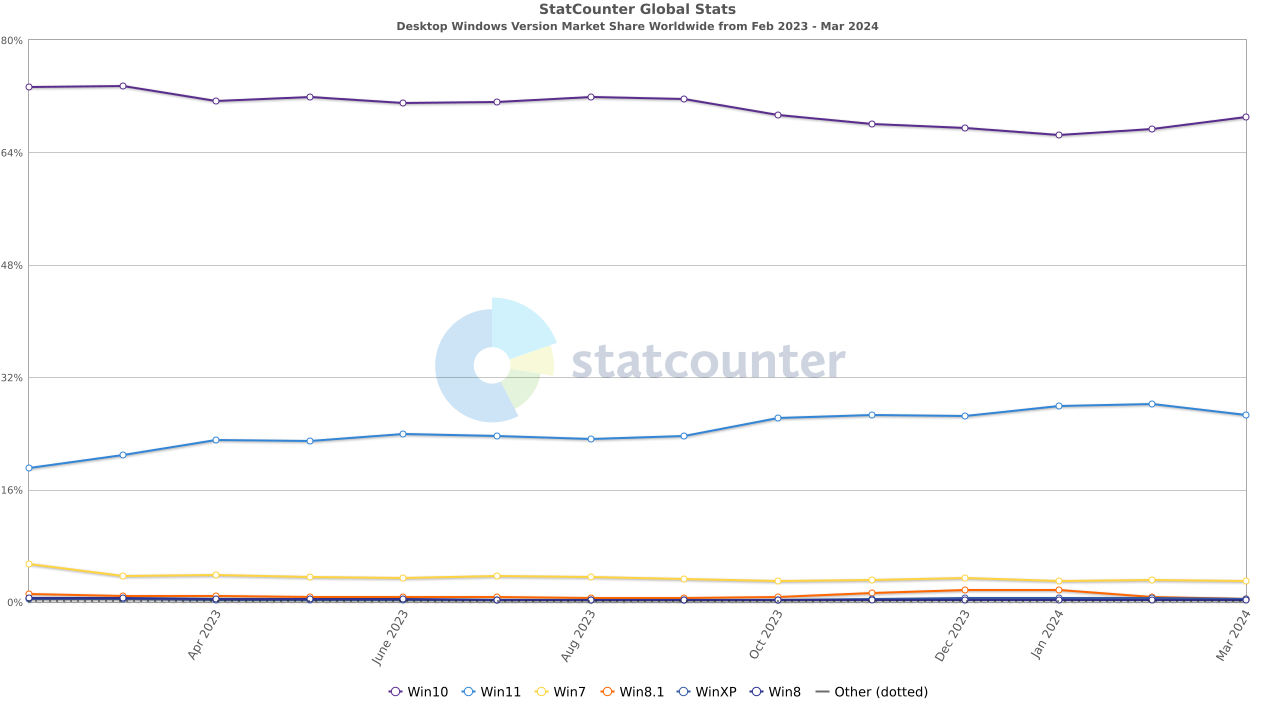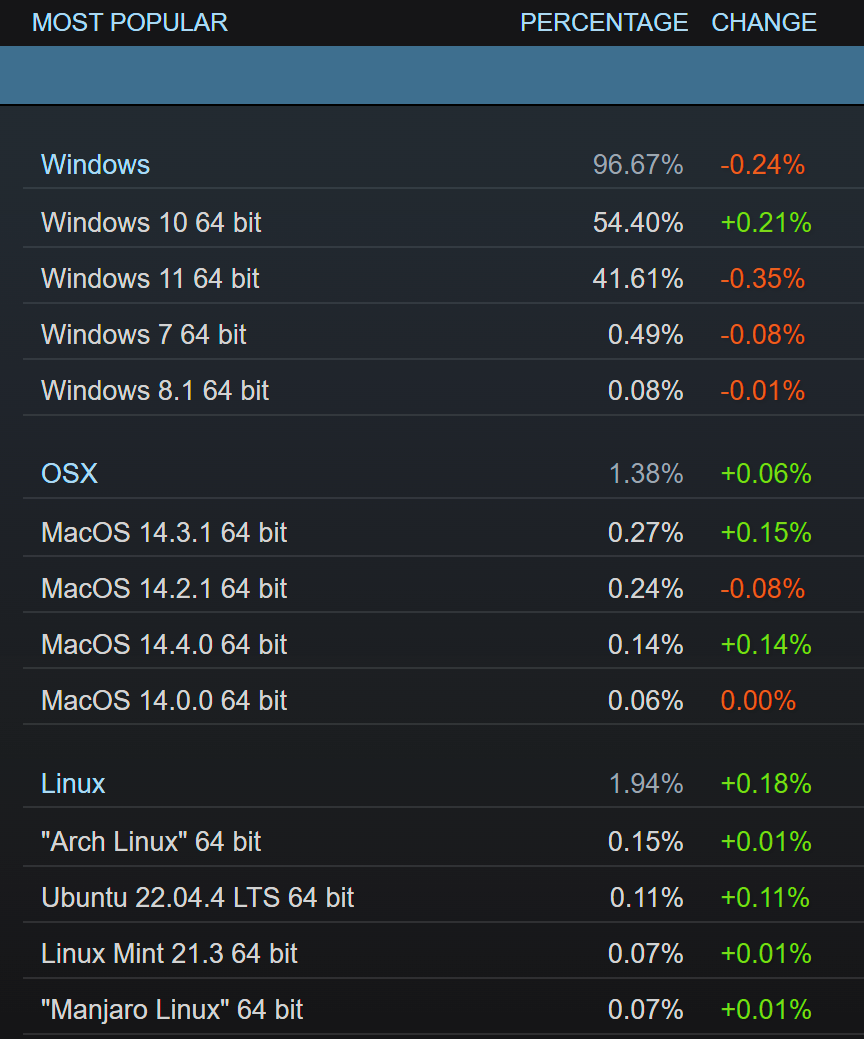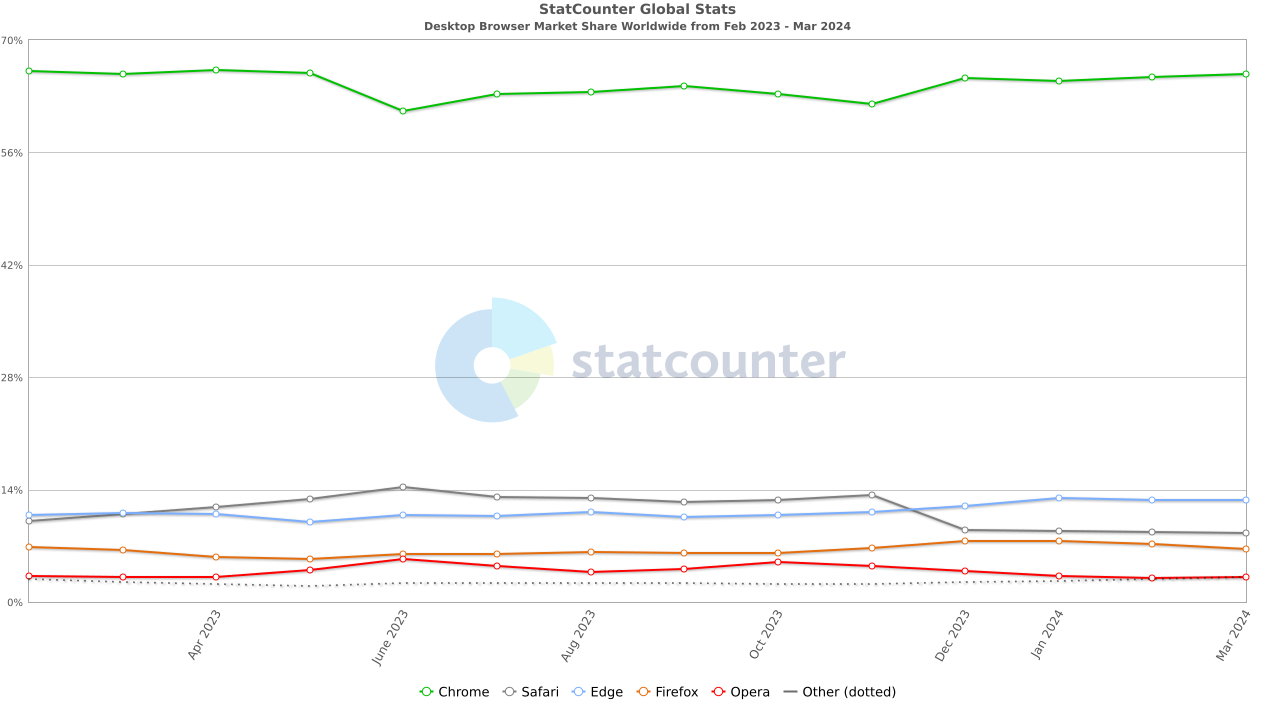In brief: Despite Microsoft recently ramping up its campaign to get more people off Windows 10 and onto Windows 11, the newer operating system's global market share fell last month as its predecessor's increased. The trend appears in both Statcounter's latest results and the Steam survey. Edge, meanwhile, is also falling behind.
It was February this year when Windows 11 reached its highest-ever global user share among Windows versions, reaching 28.16%. A month earlier, Windows 10 had fallen to 66.47%, its lowest since December 2019.
But Statcounter's updated report won't make for welcome reading for Microsoft. Windows 11 saw its global share drop 1.46% in March to 26.72%. At the same time, Windows 10's share grew almost 2% to 69.07%.
In February, Microsoft started nagging Windows 10 users to upgrade to Windows 11 using several full-screen popups. The upgrade button gave users the choice of getting Windows 11 or scheduling an install later. The option for staying on Windows 10 was easily missable at the bottom of the screen.
We were also reminded in March that Windows 10 Enterprise and Education editions would soon enter their end of life status, with organizations pushed to upgrade to the latest Windows 10 release or Windows 11.
It appears that Microsoft's efforts are yet to pay off. In addition to Statcounter's results, Windows 11 has been falling in popularity among Steam survey participants. For the second month in a row, its user share dropped while Windows 10 increased. The older OS now holds a 54.4% share while Windows 11 is at 41.6%.
Statcounter has more unwelcome news for Microsoft in the desktop browser category. Edge, which reached its highest-ever global share of 12.96% in January, has since fallen to 12.7%. It's not a huge drop but still marks the browser's lowest share of the year so far. It also comes at a time when Microsoft has been promoting Edge's new look and the generative AI abilities of the built-in Copilot tool.
It's worth remembering that reports from both Statcounter and the Steam survey aren't 100% accurate, but they do offer a good idea of how different products are performing.



